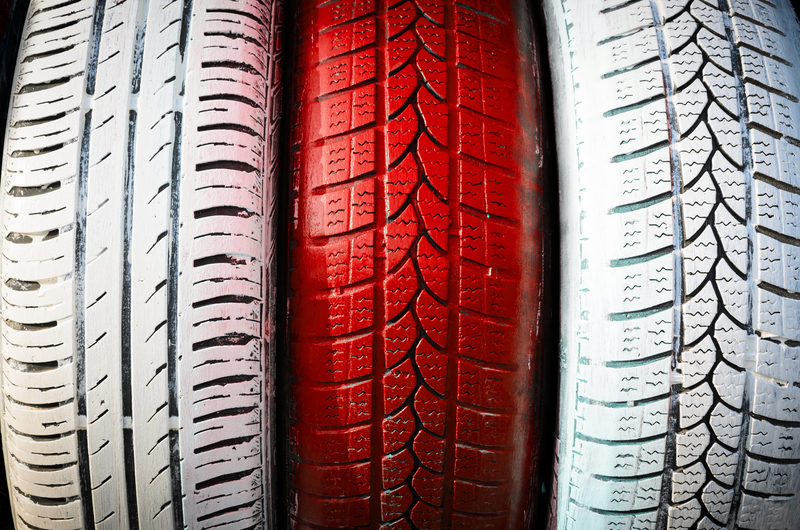How to Safely Dispose of Old Electronics
Posted on 17/09/2025
Why Proper Electronics Disposal Matters
In our rapidly advancing technological world, we often find ourselves upgrading to the latest devices, resulting in a surplus of old, unwanted electronics. Proper disposal of these items is crucial because they contain harmful materials such as lead, mercury, and cadmium that can cause severe environmental damage and health risks if not handled correctly. This article will guide you through the steps to safely dispose of your old electronics.

Assessing Usability
Before jumping to disposal, consider if your electronics still hold any value. Many devices can be repurposed, donated, or sold. If the equipment is in working condition, you might be able to extend its lifecycle and keep it out of landfills:
- **Reuse:** If the device is still functional, think of creative ways to reuse it. Older electronics can serve as backup devices, media players, or educational tools for children.
- **Donate:** Various organizations and schools are always in need of working electronics. Donating can give your device a second life and aid those who cannot afford new technology.
- **Sell:** Platforms like eBay, Craigslist, or trade-in programs from retailers like Best Buy and Amazon can help you earn some extra cash while ensuring the electronics are put to good use.
Proper Recycling
For electronics that are no longer functional or too outdated, recycling is the most effective method to dispose of them safely. Many components within these devices are recyclable and can be repurposed for new products. Here are a few ways to ensure proper recycling:
- **E-Waste Recycling Centers:** Specialized recycling centers are equipped to handle electronic waste (e-waste) safely. You can locate nearby centers using websites like Earth911 or through your local municipal waste management services.
- **Manufacturer Take-Back Programs:** Many manufacturers offer take-back or recycling programs. Brands like Apple, Dell, and HP have robust recycling schemes to handle old devices responsibly.
- **Retailer Programs:** Major retailers like Best Buy and Staples have in-store recycling programs where you can drop off various electronics for safe disposal.
Data Security Measures
Safe disposal of electronics also includes ensuring that your personal data is securely erased. Identity theft from improperly discarded electronics is a significant risk. Take the following steps to protect your data:
- **Back-Up Data:** Ensure all essential data is backed up before wiping the device.
- **Factory Reset:** Perform a factory reset on smartphones, tablets, and computers to delete personal information.
- **Remove Storage Components:** Physically remove storage components like hard drives and memory cards if you are unable to perform a factory reset.
- **Use Data Wiping Software:** Employ software tools to thoroughly erase data from the device. Programs like DBAN (Darik's Boot and Nuke) are effective for this purpose.
Environmental Benefits
Recycling and safe disposal of old electronics offer numerous environmental advantages:
- **Reduction in Toxic Waste:** Proper disposal prevents harmful toxins from contaminating the soil, water, and air.
- **Conservation of Resources:** Reusing and recycling electronic parts conserves natural resources and reduces the need for raw material extraction.
- **Energy Efficiency:** Manufacturing products from recycled materials typically requires less energy than using raw materials, leading to a smaller carbon footprint.
Tips for Safe Disposal
- **Research Options:** Verify local, manufacturer, and retailer programs for recycling and disposal.
- **Sort Electronics:** Separate batteries and other hazardous components from the main devices.
- **Consult Professional Services:** For large quantities of e-waste or complex devices, consider hiring professionals who specialize in electronics disposal.
The Pros and Cons
**Pros:**
- **Environmental Protection:** Reduces pollution and conserves natural resources.
- **Economic Benefits:** Can earn money through trade-in or resale programs.
- **Supporting Communities:** Donating electronics can aid schools and non-profits.
**Cons:**
- **Privacy Risks:** Potential data theft if devices are not wiped clean.
- **Lack of Awareness:** Inadequate knowledge about proper disposal methods can lead to improper disposal.
- **Effort and Time:** Finding and utilizing proper disposal methods can be time-consuming.

Takeaways
- Evaluate the potential for reuse, donation, or resale before deciding to dispose of electronics.
- Utilize specialized recycling centers, manufacturer take-back programs, or retailer initiatives to recycle non-functional or outdated devices.
- Ensure data security by wiping personal information or removing storage components.
- Familiarize yourself with local laws and disposal options to minimize environmental impact.
Conclusion
Disposing of old electronics safely is a vital practice to protect our environment and personal data. By taking responsible steps--whether it's repurposing, donating, recycling, or securely erasing data--you contribute to reducing electronic waste and fostering a more sustainable future. Always be informed about the disposal options available to you and follow best practices to guarantee a safe, responsible approach to handling old electronics.
Latest Posts
Eco-Friendly Home Organization
Dispose with Care: Responsible Strategies for Removing Waste
Sustainable Solutions for Commercial Waste
Sustainable Solutions: A Closer Look at London's Waste Reduction Efforts

 020 3744 5712
020 3744 5712










